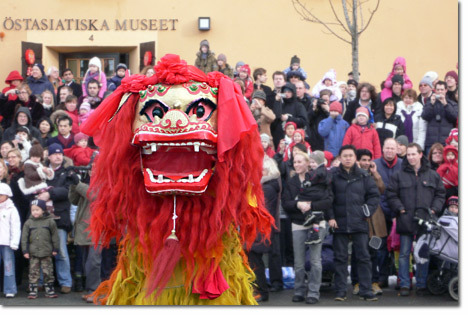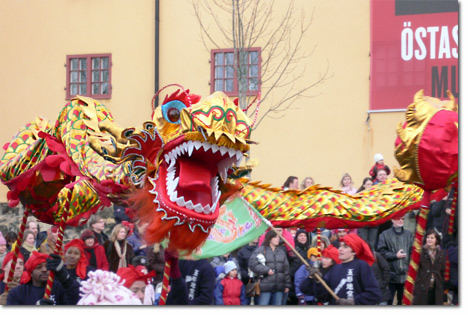We are living in the year of the pig
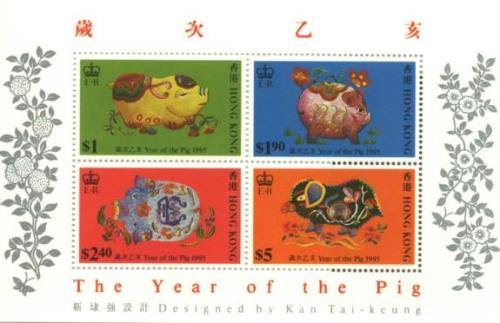
The Chinese Lunar New Year is the longest chronological record in history, dating from 2600BC, when the EmChinese New Year is the longest and most important celebration in the Chinese calendar. The Chinese year 4705 begun on Feb. 18 2007.The Chinese New Year starts with the New Moon on the first day of the new year and ends on the full moon 15 days later. The 15th day of the new year is called the Lantern Festival, which is celebrated at night with lantern displays and children carrying lanterns in a parade.
Chinese months are reckoned by the lunar calendar, with each month beginning on the darkest day. New Year festivities traditionally start on the first day of the month and continue until the fifteenth, when the moon is brightest. In China, people may take weeks of holiday from work to prepare for and celebrate the New Year.
According to the legend, Buddha asked all the animals to meet him on Chinese New Year. Twelve came, and Buddha named a year after each one. He announced that the people born in each animal's year would have some of that animal's personality and one of the animals was the pig.
The pig people...
Pig people love to read, are generally thirsty for knowledge, and not readily talkative, but if presented with an opportunity to discuss topics of interest with like-minded individuals Pigs may find themselves talking non-stop for hours. People born in the Year of the Pig are trusted associates in whatever career they happen to choose.
Photo and source:google.com
Chinese New Year celebration in Stockholm
Chinese women spend their savings on handbags
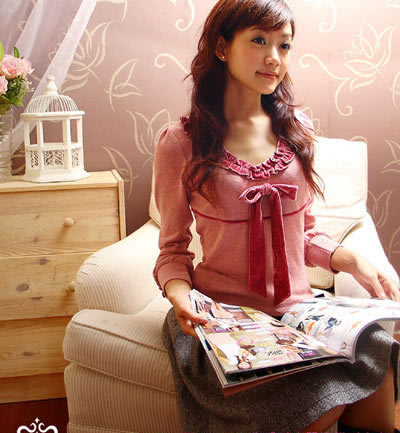
In April 2006, yachts, golf products, watches and other expensive merchandise were added to the luxury consumption tax list in China, which was still far from satisfactory according to some economists. The taxes for luxury products are still relatively low compared to Europe and USA, but the taxes will probably increase in the future. High taxes are for example presently not imposed on private planes, luxury houses or top-grade furniture.
Another interesting phenomenon is that people in Shanghai are more cynical towards brand-names than are people in smaller cities, who are now the true believers. People who spend all the money they got to get LV bags and accessories, and then take those on the buses and subways for them. People who make 3000 RMB a month will spend half a year's savings on a bag. Thriftier types will ask people coming back from Europe or North America to bring back stuff. The explanation given is that although these women might not make a lot of money, they are around people who could spot a fake bag from 50 meters.
As Chinese millionaires spend supporting their fancy lifestyles, the concept of a healthy and sustainable lifestyle, one that stresses the importance of the physical and mental health of all living things, which cannot be achieved by spending a lot of money, is catching on in the US. Will that lifestyle be the new trend and influence the Chinese customers?
Sources: www.shanghaiist.com, www.womenofchina.cn
Street fashion in Shanghai
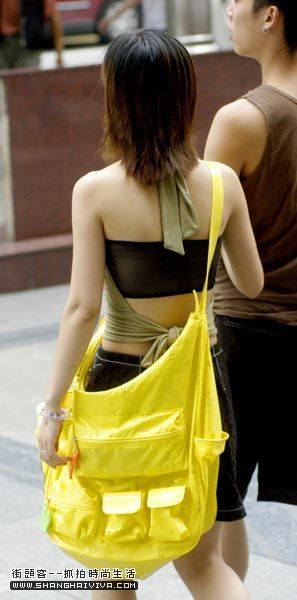

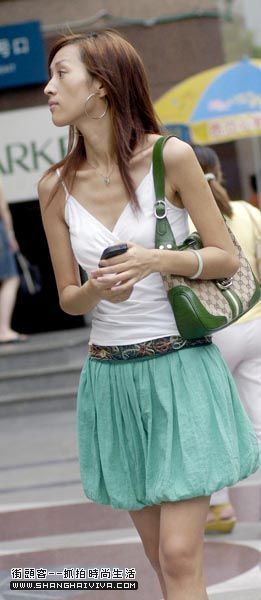
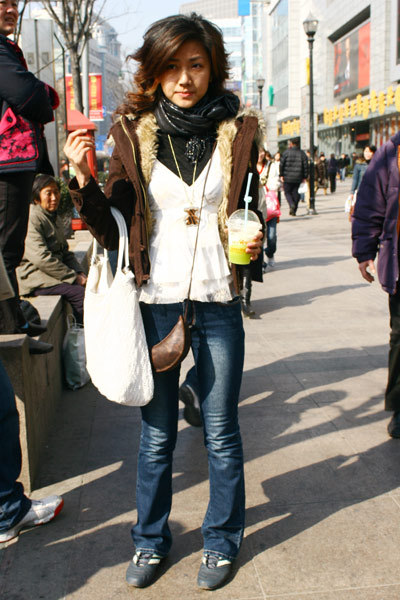
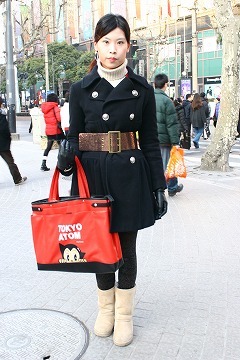
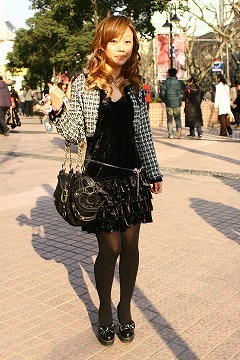

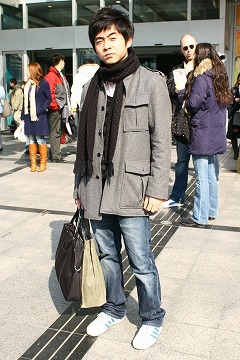
Street fashion is an aspect of a country's culture. The attire of everyday people in a city reflects social influences from such sources as the media, peer groups or religion. Combined with personal taste, an overall picture of a society's dress code can be formed. For many fashionistas in Shanghai the trends in Tokyo and Seoul are the major inspiration. And in the same pace as the Chinese get richer they also start to spend money on clothes to create their own identity in the giant city.
Shanghai is a cosmopolitan city with a multitude of cultures stemming from its multiracial population. The majority of people in Shanghai seem to capture trends through meticulous accessorizing, giving the most conservative outfit a kitsch twist.
It will be interesting to see how Shanghai street style evolves while the sources of inspiration grow as the city develops. My guess is that Shanghai will one of the great fashion capitals of the world within 10 years. Scandinavian brands like Vero Moda, Jack and Jones are doing really well in China. It's also with great interest I follow the opening of H&M first store in China in April
China has started a campaign to protect ethnic cultures
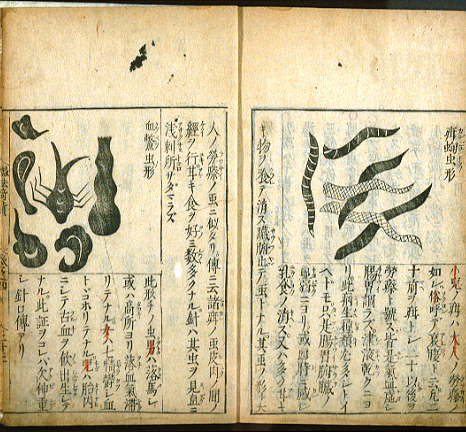
Photo:www.nlm.nih.gov
In China a lot more languages than the most known, Cantonese and mandarin are spoken. Twenty-one ethnic groups had their own written language in China 2006.
China has the five last years collected more than a million ancient ethnic books and published more than 5,000 of them during the 10th "Five-Year" Plan period from 2001 to 2005. A massive catalogue of extant ancient books of the 55 ethnic minorities are being compiled. China publishes over 50 million copies of books in ethnic languages each year. There are also 99 newspapers and 223 periodicals published in 10 ethnic languages.
Source:Xinhua.com
Two dogs' pictures of Shanghai
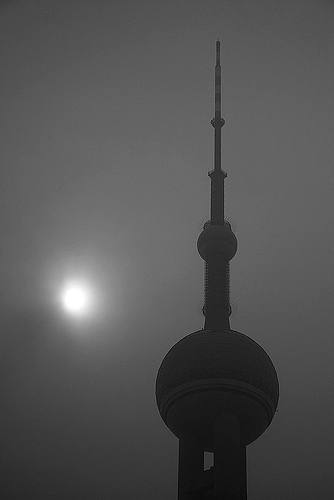

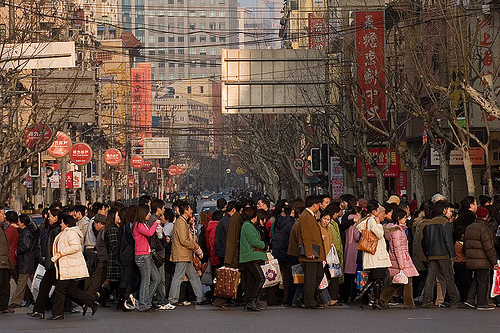
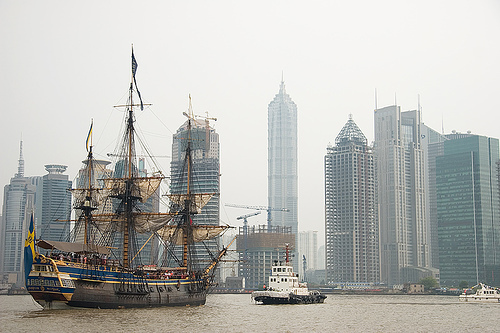
Photos and source:http://www.flickr.com/photos/2_dogs/
H&M to open soon in Shanghai
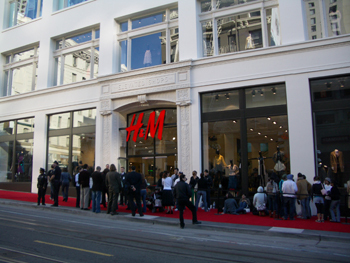
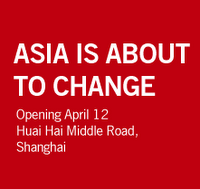
H&M has during several years had the majority of the production located in China. But finally ! H&M will open a flagship store on 12th April. The store will be located in the old Benetton store on Huai Hai Middle Road, in the the corner of Huaihai and Sinan Road, next to Sephora.
Project Destination Asia

DestinationAsia is a student driven organization with the purpose to among students increase the knowledge about Asia in general and China in particular. The boardmembers are students from Chalmers and School of Business, Economics and Law in Gothenburg. The goal for the organization is to provide information about how to study and work in the region, but also to create a network between Swedish students/companies and Chinese students/companies.
The organization was established in January 2005 and has sponsors as SAS, Fagerhult, and Hägglunds. Destination Asia has since 2005 arranged different seminars with headlines as ; ‘An introduction to China’, ‘The Chinese economy’ and finally ‘How to work and study in China’.
Finally in order to gain more knowledge about China and to create a functioning network, the present board also went to on a study tour to China for eleven days in early June 2006. During the trip DestinationAsia met several Swedish and foreign companies as well as other experts. After the study tour the board members published an report "China Dawn" about their journey and China experiences.
Source/Photos: Destinationasia.se
Luodian, a Swedish town in Shanghai
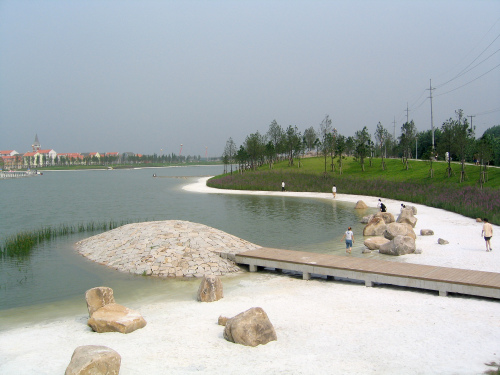
China has imported Swedish sustainable development to one of the fastest-growing cities in the world. Shanghai has now it's own Sigtuna and a “Lake Meilan” a copy of lake Mälaren (the third-largest lake in Sweden) Luodian was ready in 2004 and is a fully fledged copy of a Scandinavian town. The city took six years to build and belongs to Baoshan, one of the 16 districts in Shanghai.
Sweco a Swedish architecture firm was involved in the planning of Luodian, the company describes the project as an export of sustainable urban development to China. The light, pastel houses in Scandinavian Cultural Street are based on those in historic Sigtuna, a small town north of Stockholm. And close to Citizen Square there is a square-shaped church-like tower overlooking Lake Meilan.
Spread over 6,8 square kilometers, Luodian is a gated community built for between 30,000 and 50,000 people, with luxury villas, a Nobel Science and Technology Park, a five-star hotel and nine-hole PGA-approved golf course. It follows the pattern of new urbanism with a traditional form without the traditional function. The center of Luodian has its own bell-tower that belongs to a building with the appearance of a 1950ies modernist church. But the planned function of the building is to congregate people for shopping instead of the Sunday mass.
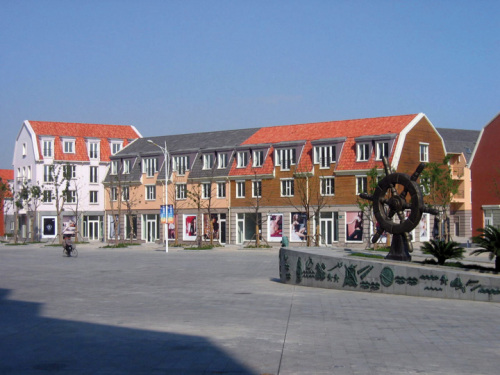
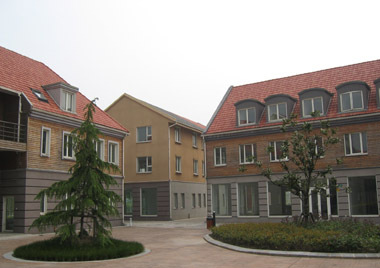
The question is whether the outcome lives up to this. The attempts in this direction with green corridors and bicycle lanes do not alone imply sustainability. As long as Luodian remains an isolated island without any connections to the rest of the city, people who choose to move there will have to rely on their own cars. Well-functioning infrastructure and public transport must be considered crucial aspects of a sustainable development, not only of Luodian, but of the whole region of Shanghai.
Sources and photos: sweco.se, luodian.com, sweden.se, sinocities.net
The art of gift giving in business

Some general recommendations before you hand over your gifts to your Chinese business partners...
- All business negotiations should be concluded before gifts are exchanged.
- Specify that the gift is from the company you represent. If you can, explain the meaning of the gift to the receiver.
- Present the gift to the leader of the Chinese negotiating team.
- Do not get anything that is obviously expensive, so that the company will not feel obliged to reciprocate.
- Valuable gifts should be given to an individual only in private and strictly as a gesture of friendship.
- Make sure that the gifts given to people of the same level of importance are equitable or of similar grade.
- Do not wrap a gift before arriving in China, as it may be unwrapped in Customs.
- If possible, have your gifts wrapped in red paper, which is considered a lucky color. Plain red paper is one of the safe choices since a variety of meanings, many of which are negative, are attributed to colors in Chinese culture.
- Pink and gold and silver are also acceptable colors for gift wrap. Wrapping in yellow paper with black writing is a gift given only to the dead. Also, do check the variations from region to region about colors.
Source:chinese-school.netfirms.com
Photo:www.worldmarket.com
Drinking tea in China
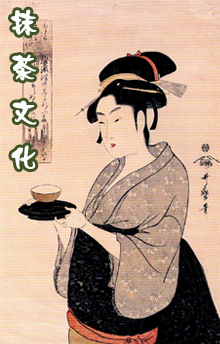
Photo:www.mybeijingchina.com
When living or doing business in a foreign country it's important to be aware of the local traditions and customs. The art of drinking and serving tea plays a major cultural role in China. For centuries, the ritual of preparing and serving tea has held a special place in the hearts and minds of Chinese aristocracy, court officials, intellectuals and poets.
Chinese tea culture includes the methods of preparation of tea, the equipment used to make tea and the occasions in which tea is consumed in China.Tea drinking was popular in ancient China as tea was regarded as one of the seven daily necessities(the others are : firewood, rice, oil, salt, soy sauce, and vinegar)
Even nowadays, in both casual and formal Chinese occasions, tea is consumed regularly. In addition to only being a social drink, Chinese tea is used in herbal medicine and in cooking.
Learn more about Tea and the Chinese Tea ceremonies at:
• Xiamen Mingren Tea Industry
• Tea Trading.com
The Chinese millionaires favourite brands
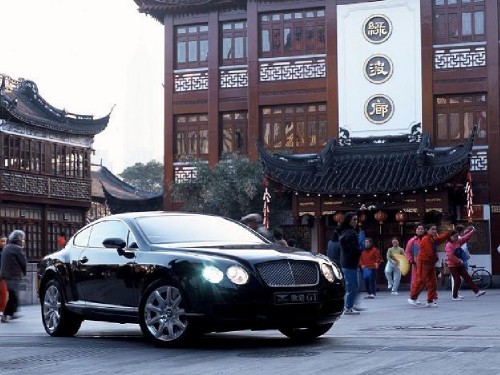
Photo:www.rrec.co.uk
Top 10 - The millionaires favourite brands
1. BMW
2. Louis Vuitton
3. Mercedes-Benz
4. Rolex
5. Giorgio Armani
6. Ferrari
7. Rolls-Royce
8. Bentley
9. Cartier
10. Vacheron Constantin
When wanting to arrive in style, China's millionaires prefer Rolls Royce, but if they are driving themselves it is the Bentley that will enjoy a day out of the garage. That's according to the Hurun Report's 2006 Best of The Best awards, a survey of brands preferred by the Chinese mainland's growing army of US dollar millionaires.
Beijing's rich favoured the US as a travel destination, while Shanghai's elite opted for Europe and France. Overall, however, it was Australia that came out on top. Elsewhere, the awards were dominated by European brands with Bentley, Rolls-Royce, Mercedes Benz, BMW, Porsche and Ferrari.
In the Watches, Jewellery and Fashion section Vacheron Constantin, Cartier, Rolex, Montblanc and Giorgio Armani swept the board, while Hennessy, Chivas Regal and Dom Perignon claimed prizes for Best Cognac, Whisky and Champagne.
Best Chinese Liquor went to Wuliangye, and other Chinese brands also cropped up: Air China took the gong for Best Domestic Airline, the Chang'an Club was named Best Private Club, Tsinghua University carried off the Best Executive MBA Course and China Merchant's Bank received awards in the Best Personal Financial Services for RMB.
Source: hurun.net
